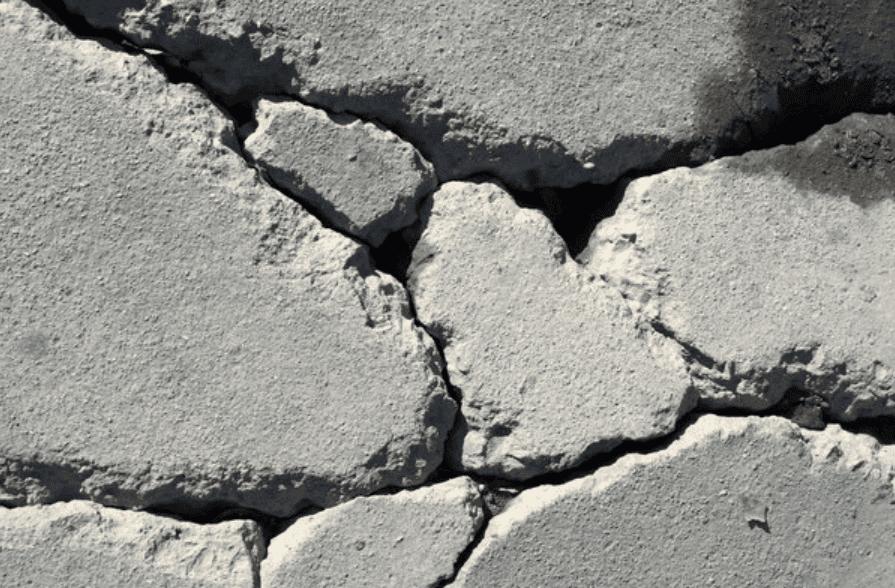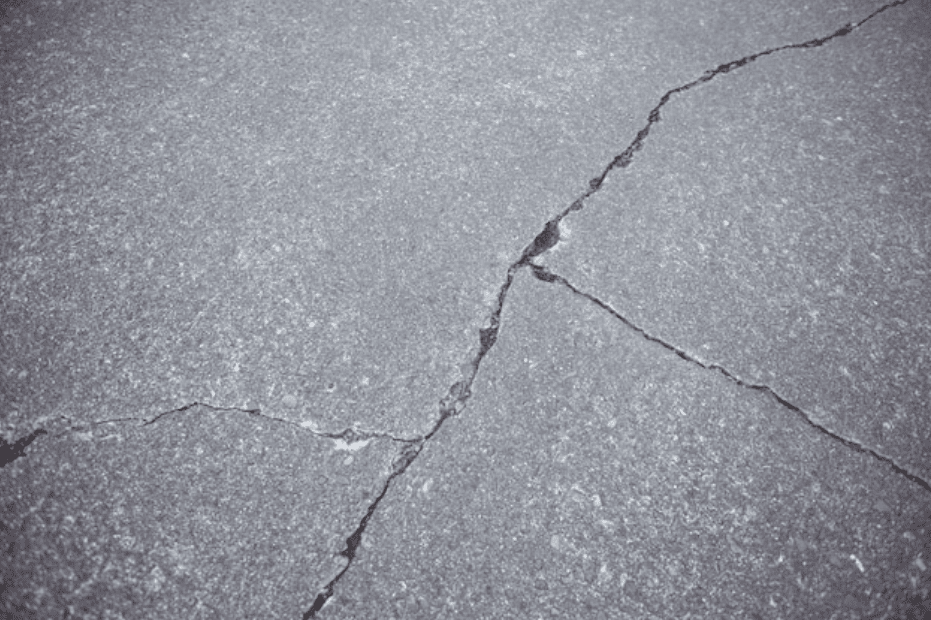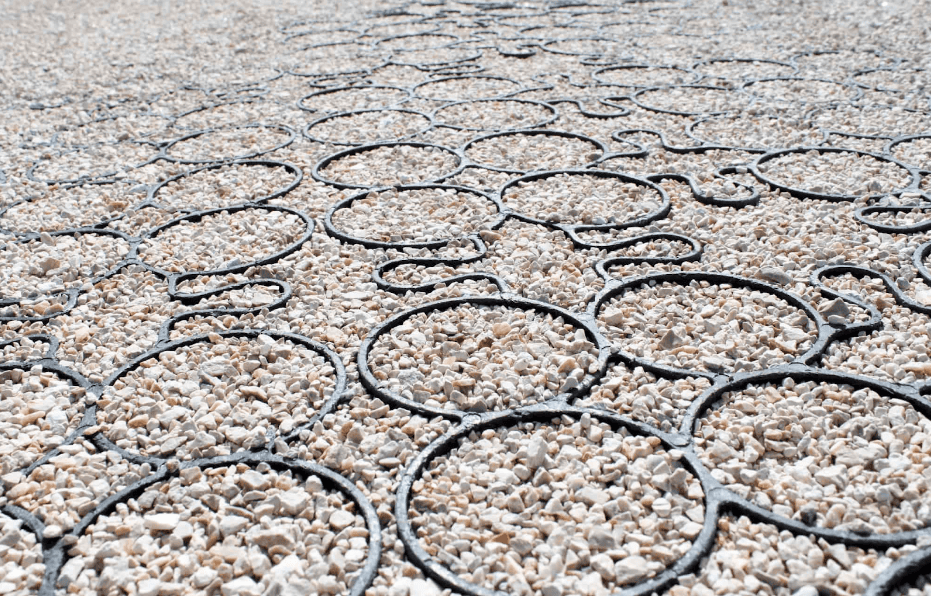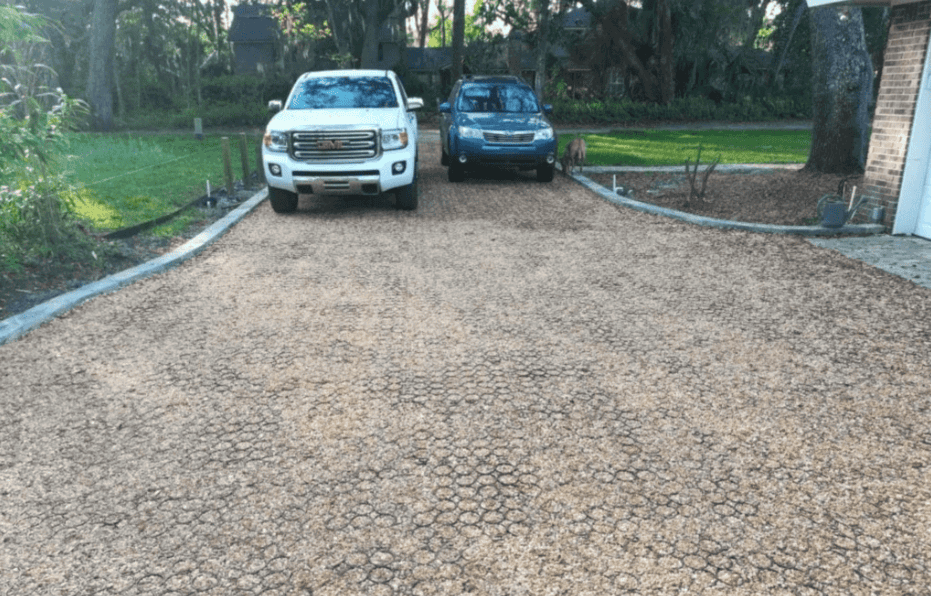Choosing Concrete PSI for a Driveway
Are you trying to figure out the concrete PSI required for your driveway? Understanding these ratings is super important, as they directly impact the longevity and performance of your driveway.
Let’s explore why concrete PSI is such an important factor so you can discover the correct requirement for your driveway.
Why is PSI Important?

PSI, or pounds per square inch, is a measurement of a material’s strength against compressive forces. It’s a key indicator of how well a material can withstand loads and the elements.
For driveways, selecting the correct PSI is essential because it essentially determines how much weight it can hold and how long it will last under maximum conditions.
Whether you’re driving a small car or a heavy truck onto your driveway, the material you choose needs to hold up without cracking under pressure.
Concrete’s strength becomes even more vital when you start to take into account environmental factors. Temperature fluctuations, moisture, and heavy loads all test the resilience of your driveway. So, choosing the right PSI rating is super important because it can help ensure that your driveway can endure any challenge you throw at it by avoiding premature repairs or replacement.
The Different Forces Put on Concrete
Driveways face a few different types of stress that help determine their strength and durability:
Compressive Stress
Compressive stress refers to the force exerted on the concrete from the weight of vehicles and objects placed on it. This type of stress compresses the concrete and challenges its ability to hold up under pressure.
Shear Stress
Shear stress occurs when forces are applied in opposite directions on either side of a concrete section that causes the material to slide or tear apart. In driveways, this might happen at the edges or where the driveway meets another surface, such as a garage floor.
Flexural Stress
Flexural stress is when concrete is subjected to bending forces, such as when a driveway covers uneven ground or supports uneven loads. This type of stress tests the concrete’s tensile strength or ability to resist breaking when bending.
Each type of stress—compressive, shear, and flexural—requires a certain level of PSI under specific conditions to avoid being damaged. That’s why PSI is so crucial.
How to Test Concrete Strength

Testing concrete strength involves assessing its PSI through compressive strength tests. These tests are performed by applying pressure to a concrete sample until it fails or cracks, thus determining its maximum strength. This method is the best because of its accuracy in measuring how well concrete can stand up to real-world demands, which is particularly important for structures like driveways where durability is so essential.
Ideal Concrete Strength for the Most Common Structures
For residential driveways and sidewalks, a PSI range of 2,500-3,000 is typically more than enough. Most people only have one or two conventional vehicles on their driveway at a time, so you don’t need much more than that.
For structures that bear more weight, like RV slabs or beams supporting your home, you need something closer to 3,500-4,000 PSI. Commercial spaces with frequent heavy traffic might require 4,000-5,000 PSI, and specialized facilities, such as nuclear power plants, require over 6,000 PSI for safety reasons.
But let’s break that down even further.
Is 3000 PSI Concrete Good for Driveways?
Yes, 3000 PSI concrete is within acceptable range for residential driveways and sidewalks. This strength is more than enough to support the weight of one or two conventional vehicles, making it a practical choice for most homeowners.
Is 3500 PSI Concrete Good for Driveways?
Yes, 3500 PSI concrete is ideal for driveways that need to support heavier loads, such as RVs or commercial vehicles. It offers increased durability and can better withstand the pressures of heavier vehicles, making it an excellent choice for homes with heavier vehicles.
Is 4000 PSI Concrete Good for Driveways?
Yes, 4000 PSI concrete is excellent for commercial driveways and spaces that experience frequent heavy traffic. This higher strength ensures that the driveway can handle the increased load and usage without significant wear and tear, extending its lifespan and reducing maintenance costs.
A Better Alternative: Permeable Pavers

While concrete is a traditional choice for driveways, TRUEGRID®’s permeable pavers present a compelling alternative. Our pavers not only have PSI ratings comparable to concrete, they also have many unique benefits:
Stronger Than Concrete in Compressive Testing
TRUEGRID® permeable pavers are engineered to withstand heavy loads which makes them as durable as high PSI concrete driveways. TRUEGRID has been independently tested to over 17,000 psi. It’s stronger in compressive strength, than any concrete mix. This capability ensures they can accommodate vehicles of all sizes, from family cars to heavier commercial vehicles, without compromising structural integrity.
Environmental Benefits
One of the standout features of permeable pavers is their ability to significantly reduce water runoff. By allowing rainwater to permeate through the gaps between them and into the ground below, they help manage stormwater naturally. This not only prevents the overwhelming drainage systems during heavy rainfall, it also contributes to replenishing local groundwater supplies.
Durability
Permeable paver systems are built to last. They’re resistant to cracking, shifting, and erosion, which are super common issues with traditional concrete driveways. The flexibility of their design also means they can adapt to changes in the ground beneath them, such as freezing and thawing cycles, without taking damage.
Ease of Installation
Our permeable pavers are quicker and less labor-intensive to install than traditional concrete. This means you can reduce the initial installation cost and save money in the long run because they also don’t require as much maintenance as other driveway materials.
Update Your Driveway with Reliable Permeable Pavers from TRUEGRID®

Choosing the right material for your driveway requires you to think about your immediate and long-term needs. While concrete with the appropriate PSI rating can provide a sturdy surface, permeable pavers from TRUEGRID® provide a blend of higher strength, durability, environmental sustainability, and longevity that concrete simply can’t compete with.
Ready to upgrade your driveway with a solution that’s built to last? Contact our team today to learn more!

